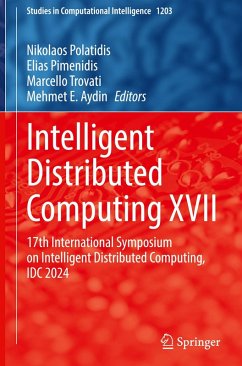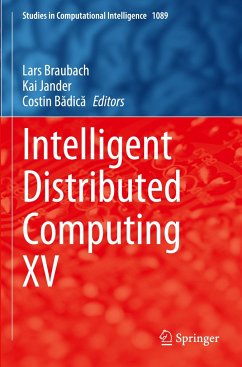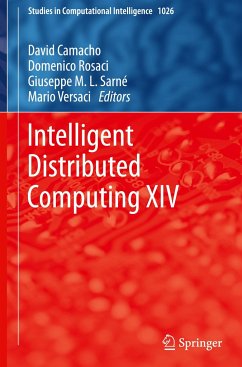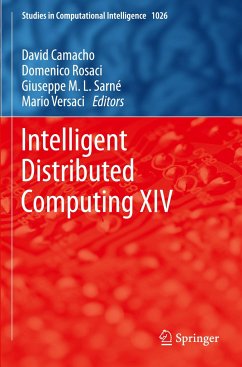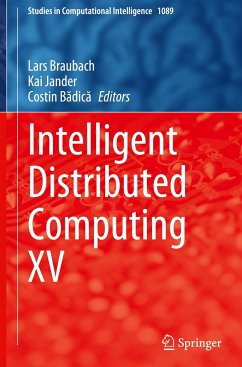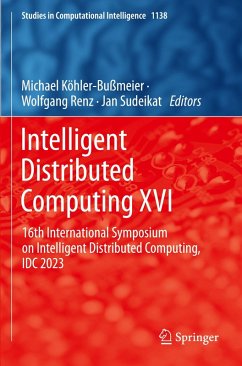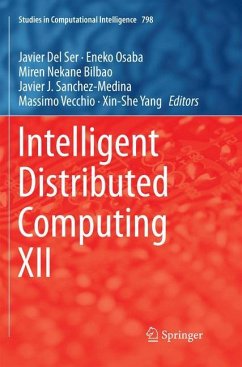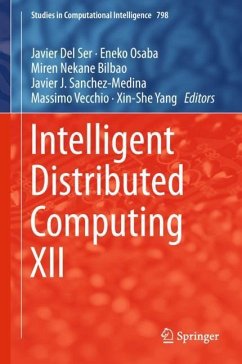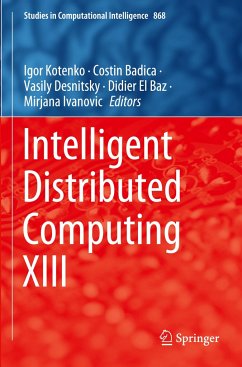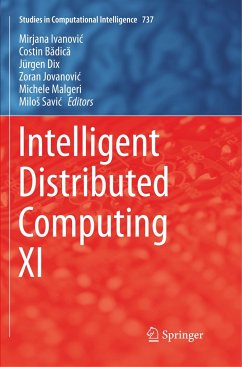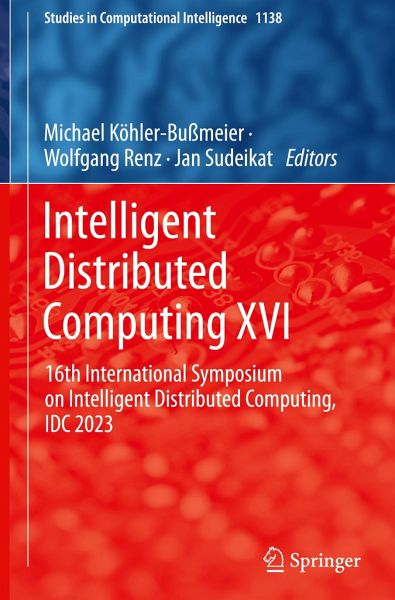
Intelligent Distributed Computing XVI
16th International Symposium on Intelligent Distributed Computing, IDC 2023
Herausgegeben: Köhler-Bußmeier, Michael; Renz, Wolfgang; Sudeikat, Jan

PAYBACK Punkte
87 °P sammeln!
This book presents selected contributions to the 16th Symposium on Intelligent Distributed Computing (IDC'23) held from September 13 to 15, 2023, at the HAW Hamburg, Germany. This unique collection of papers presents the latest findings, research achievements and ideas in the area of Intelligent Distributed Computing provided by researchers and practitioners from both distributed computing and intelligent computing communities. Distributed computing covers methods and technology to build complex computational systems composed of collaborating software components scattered across diverse comput...
This book presents selected contributions to the 16th Symposium on Intelligent Distributed Computing (IDC'23) held from September 13 to 15, 2023, at the HAW Hamburg, Germany. This unique collection of papers presents the latest findings, research achievements and ideas in the area of Intelligent Distributed Computing provided by researchers and practitioners from both distributed computing and intelligent computing communities. Distributed computing covers methods and technology to build complex computational systems composed of collaborating software components scattered across diverse computational elements. Intelligent computing offers a hybrid palette of methods, techniques and their applications ranging from classical artificial intelligence, information and data sciences, multi-agent technologies or computational intelligence to more recent trends such as swarm intelligence, bio-inspired computation, cloud computing, machine learning or social/cyber-physical trust and security.





